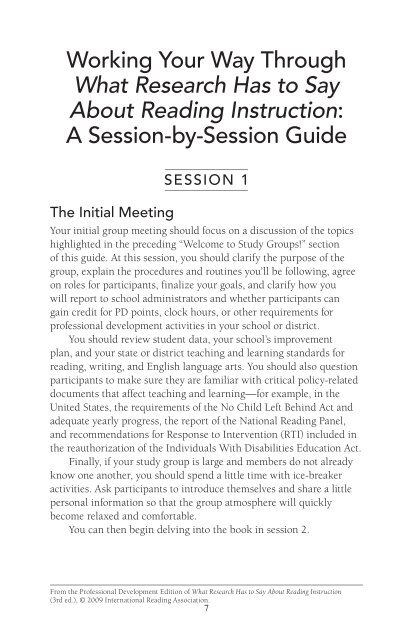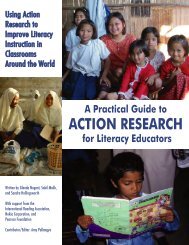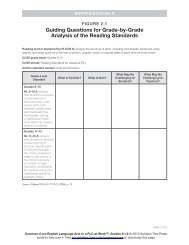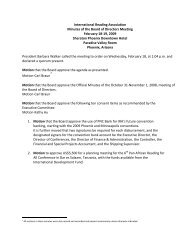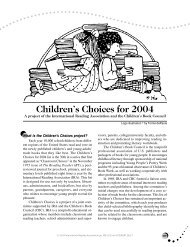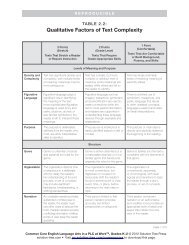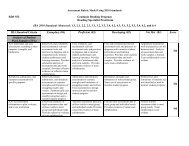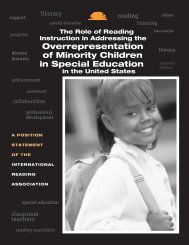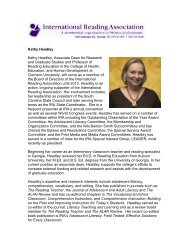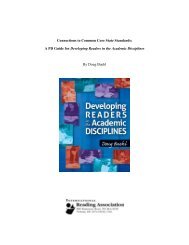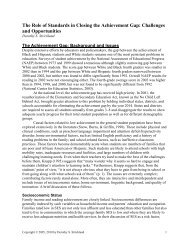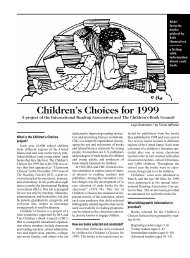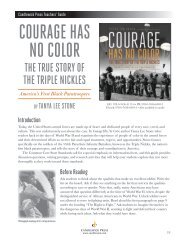What Research Has to Say About Reading Instruction - International ...
What Research Has to Say About Reading Instruction - International ...
What Research Has to Say About Reading Instruction - International ...
Create successful ePaper yourself
Turn your PDF publications into a flip-book with our unique Google optimized e-Paper software.
Working Your Way Through<br />
<strong>What</strong> <strong>Research</strong> <strong>Has</strong> <strong>to</strong> <strong>Say</strong><br />
<strong>About</strong> <strong>Reading</strong> <strong>Instruction</strong>:<br />
A Session-by-Session Guide<br />
The Initial Meeting<br />
SESSION 1<br />
Your initial group meeting should focus on a discussion of the <strong>to</strong>pics<br />
highlighted in the preceding “Welcome <strong>to</strong> Study Groups!” section<br />
of this guide. At this session, you should clarify the purpose of the<br />
group, explain the procedures and routines you’ll be following, agree<br />
on roles for participants, finalize your goals, and clarify how you<br />
will report <strong>to</strong> school administra<strong>to</strong>rs and whether participants can<br />
gain credit for PD points, clock hours, or other requirements for<br />
professional development activities in your school or district.<br />
You should review student data, your school’s improvement<br />
plan, and your state or district teaching and learning standards for<br />
reading, writing, and English language arts. You should also question<br />
participants <strong>to</strong> make sure they are familiar with critical policy-related<br />
documents that affect teaching and learning—for example, in the<br />
United States, the requirements of the No Child Left Behind Act and<br />
adequate yearly progress, the report of the National <strong>Reading</strong> Panel,<br />
and recommendations for Response <strong>to</strong> Intervention (RTI) included in<br />
the reauthorization of the Individuals With Disabilities Education Act.<br />
Finally, if your study group is large and members do not already<br />
know one another, you should spend a little time with ice-breaker<br />
activities. Ask participants <strong>to</strong> introduce themselves and share a little<br />
personal information so that the group atmosphere will quickly<br />
become relaxed and comfortable.<br />
You can then begin delving in<strong>to</strong> the book in session 2.<br />
From the Professional Development Edition of <strong>What</strong> <strong>Research</strong> <strong>Has</strong> <strong>to</strong> <strong>Say</strong> <strong>About</strong> <strong>Reading</strong> <strong>Instruction</strong><br />
(3rd ed.), © 2009 <strong>International</strong> <strong>Reading</strong> Association.<br />
7


